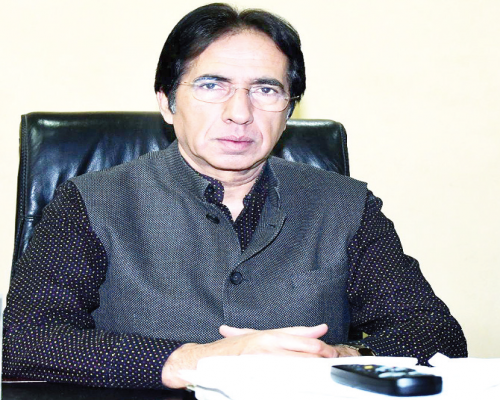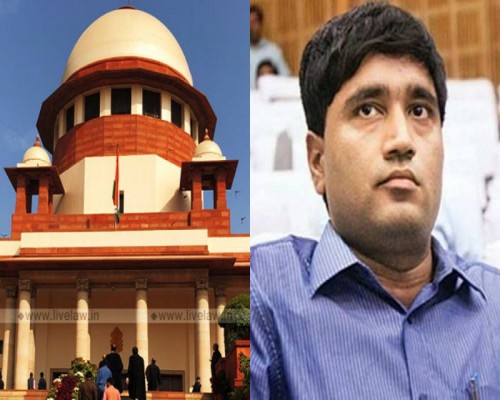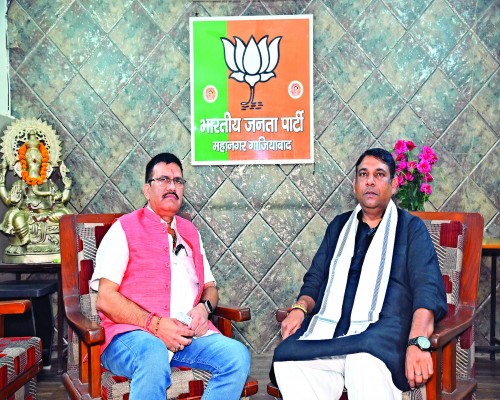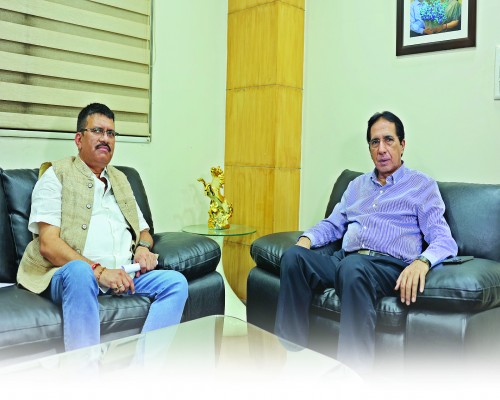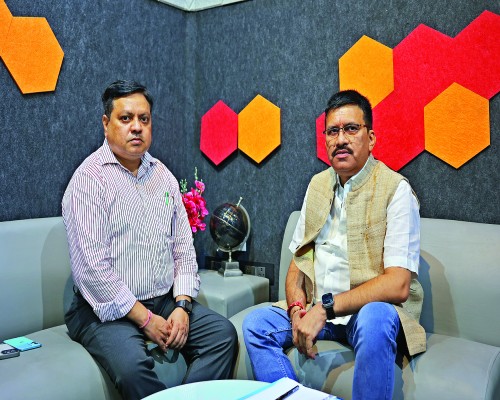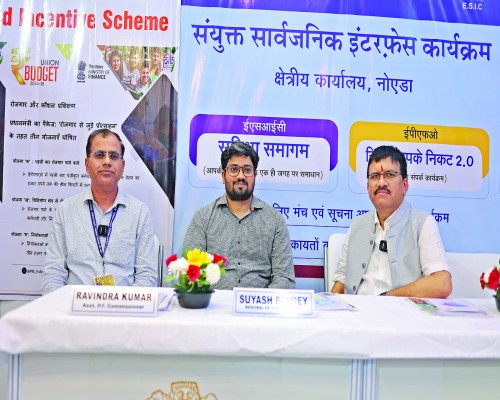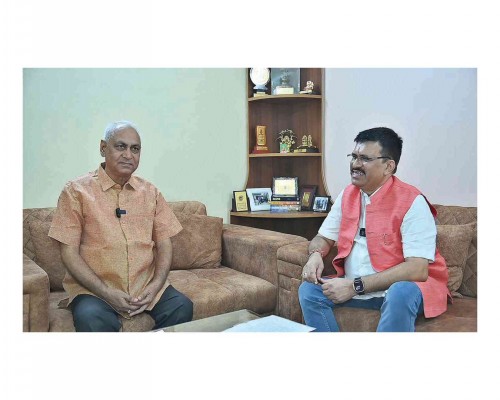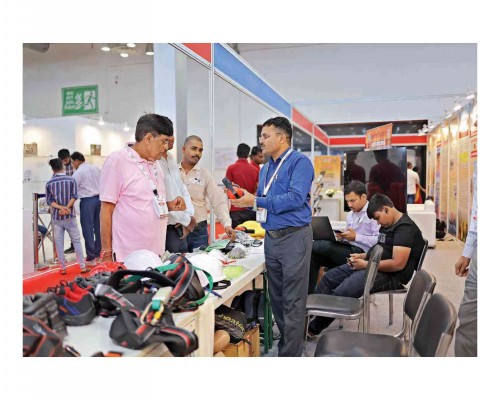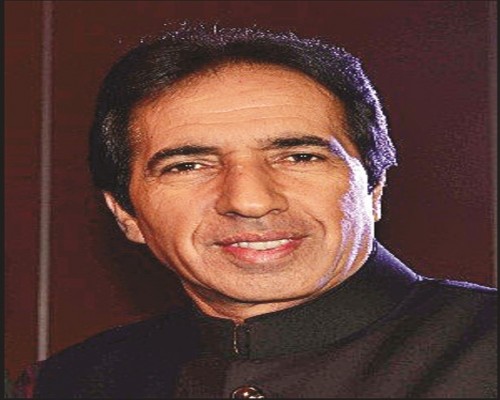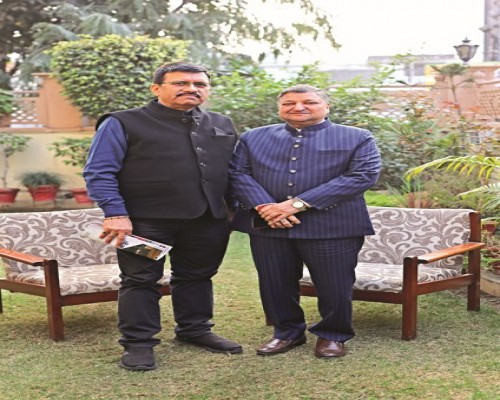Ensuring Compliance and Welfare: A Conversation with Sarju Ram, Additional Labour Commissioner of Gautam Buddha Nagar
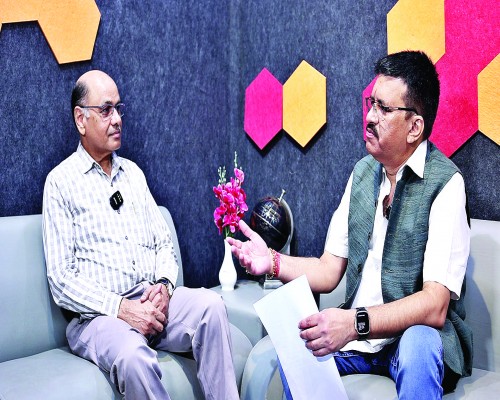
UV India News: Today, we have Sarju Ram, the Additional Labour Commissioner of Gautam Buddha Nagar, who will address all queries related to labour laws. Since your arrival in Gautam Buddha Nagar, Noida has seen remarkable improvements in operations. You have been working excellently and are known for your ability to satisfy both the workers and the employers.
Satendra Singh: What challenges do you face in ensuring compliance with labour laws in factories and establishments? How do you address these challenges?
Sarju Ram Sharma, Additional Labour Commissioner, Gautam Buddha Nagar: Before I answer that, let me briefly explain that compliance with labour laws and the welfare of workers are two distinct aspects. Sometimes, compliance with labour laws occurs, but worker welfare does not. When we enforce the law, people often think we are causing harm, but that’s not true. When industries develop, worker welfare naturally improves. Even during the Gupta and Maurya periods, there was significant industrial and commercial development, which inherently led to compliance with labour laws and enhanced worker welfare.
Regarding compliance with labour laws, there's a reference from the Valmiki Ramayana where, after King Dasharatha's death, Bharat went to persuade Lord Rama, who was in exile. When Bharat met Rama, the first question Rama asked was:
कञ्चिद्दासस्य भक्तं च वेतनं च यथोचितम्।
सम्प्राप्तकालं दातव्यं ददासि न विलम्बसे।।
Meaning: "Do not delay giving food and wages to a servant according to their due, and at the appropriate time."
This verse emphasises the importance of prompt and fair remuneration for workers, stressing that wages and provisions should be provided without delay. It reflects the value of timely and just compensation in work relationships.
कञ्चित् वृत्तसमापन्नं यथोक्तमनुतिष्ठतः।
दद्यान्न आप्लुत्य दातव्यं इति नोपकृतं भवेत्।
Kaṃchit vṛtta-samāpannam yathoktam anutiṣṭhataḥ,
Dadyānna āplutya dātavyam iti nopakṛtaṃ bhavet.
Meaning: "One who has completed his task and is deserving, as per the agreement, should be given what is due to him without delay. Without this, even a well-rendered service is not considered accomplished."
This is the same question we pose to employers today. As Shri Ram Chandra Ji mentioned at that time, ensuring that all workers, devotees, servants, and soldiers receive their due wages in appropriate amounts and on time is crucial. This principle aligns with the Minimum Wages Act and the Timely Payment of Wages. Employers should provide sufficient funds to workers to meet their basic needs.
Satendra Singh: Recently, there have been numerous complaints about the harassment of women in various places. What are your views on the implementation of the POSH Act in companies? How does the Labour Department ensure its implementation? What should be the approach, and why is the POSH Act mandatory? Please provide some insights on this matter.
Sarju Ram: The POSH Act of 2013 is compelling legislation that benefits both men and women. One of its most significant components is the Internal Complaints Committee, which should be established in every company, establishment, and factory. The benefit of this committee is that when a female employee faces harassment by a male, she can file a complaint with the committee. The committee investigates, conducts hearings, and reaches a conclusion through an investigation report. Based on the report, if the accused is found guilty, disciplinary actions can be taken against him. This reassures us of the measures in place for workplace safety.
Previously, without such a committee, complaints were directly filed at police stations, often leading to unnecessary complications. Now, with proper investigations, the truth is established clearly, whether the harassment claim is valid or not, ensuring that if harassment has occurred, appropriate actions are taken. This positive impact of the Acts' implementation should give us hope for a more equitable workplace.
Additionally, significant progress has been made under the Maternity Benefit Act. Gautam Buddha Nagar in Uttar Pradesh is the first district to achieve this, which is noteworthy as no such efforts were made previously in the region.
We have informed our officers that they, too, hold authority; they can make decisions on cases, order reinstatement, and perform tasks usually done by Labour Commissioners. This authority allows even Assistant Labour Commissioners to recover dues effectively. Once they were aware of their powers, they started working actively, resulting in the disbursement of ₹618,000 to women workers. This empowerment of officers is a significant step towards gender equality in the workplace and should inspire us all.
Many companies used to terminate women employees once they became pregnant, which is why it is essential to enforce restrictions against such practices.
Satendra Singh: When a woman is expecting and takes leave before and after delivery, totalling six months, can she take these leaves consecutively?
Sarju Ram: Yes, the leave can be taken three months before, after delivery, or a combination of both. She can utilise her earned or privileged leaves if additional leave is needed. There’s no issue in doing so.
Satendra Singh: What provisions exist for contract labourers working under a one-year contract? How does your department ensure contract labourers receive the same benefits as principal employers? There is often confusion about whether contract labourers receive the benefits they are entitled to. Could you please shed some light on this?
Sarju Ram: A company provides the same facilities for all regular or contract workers. For example, the canteen and other amenities are identical for both. Contract workers who perform similar tasks as directly hired employees are entitled to the same wages and benefits as stipulated. In numerous cases, contract workers were awarded wages equivalent to regular employees. An earlier case in HAL set a precedent where contract workers received the same salary as long as the company employed them.
Satendra Singh: What types of labour can work under contractors? Can you elaborate on work of a perennial or temporary nature?
Sarju Ram: Article 10 of the Contract Act is relevant to contract labour. This article allows the appropriate government to decide whether a particular industry can engage contract labour for certain types of work. Notifications will be issued specifying whether contract labour is permissible for certain activities. If prohibited, no license for contract labour will be granted for that work; however, licenses may still be obtained for other permissible work.
Satendra Singh: How does your department resolve Industrial Relations (IR) matters?
Sarju Ram: This is an efficient issue. Both sides present their arguments—workers want to receive the maximum possible benefits, while employers aim to minimise costs. Our task is to find a common ground, a convergence point where both parties can agree, leading to a successful negotiation. Reaching this point often involves extensive discussions and adjustments. Agreements are also registered, which brings joy to all parties because a satisfied worker is more dedicated and productive, enhancing industrial relations.
In one instance, there was a strike where a minor altercation with a worker leader escalated into a national issue. We intervened, spent the entire day with the Police Commissioner at the site, and eventually facilitated a settlement. Today, the factory operates smoothly with high production.
Honest and sincere efforts often resolve such conflicts. Sometimes, strict measures, akin to bitter medicine in Ayurveda, are necessary for the greater good of both parties. When both sides are satisfied, the industry thrives, productivity increases and harmonious relations are established.
Satendra Singh: In hazardous factories, what precautions are taken for safety? How does your department, including Assistant and Deputy Directors of Factories, monitor these measures?
Sarju Ram: Inspections cover many aspects. Once an issue is identified and corrected, it must be maintained. Every worker, whether a safety officer or not, should be vigilant. For example, if materials are lying around or machinery is exposed, such hazards must be immediately addressed. Doors should open outward for quick exits, safety belts and helmets should be worn correctly, and training is essential to ensure safety awareness.
One notable example is the Grasim Industries plant in Renukoot, where employees gather for a 50-minute prayer every morning, followed by safety briefings. Such practices foster a safety culture across all levels of the organisation, benefiting every worker and manager alike.
Satendra Singh: Regarding the Contract Act, what happens when a contractor completes a job and wants to retrieve their security deposit? There seems to be a delay in refunds since the implementation of the online system. What would you say about this?
Sarju Ram: There shouldn’t be any issues. If you have deposited the security online, you should be able to reconcile it easily. In the past, matching deposits was more cumbersome with offline challans. Now, if all original documents are correctly submitted and all work is certified as complete by the principal employer, the security amount is refunded electronically without delay.
Some contractors have experienced delays, and we have deployed additional staff to address these issues, ensuring that all reconciliations are handled efficiently and promptly.
Satendra Singh: What powers do inspectors have during inspections under labour laws?
Sarju Ram: The government has periodically regulated the inspection system. The first significant regulation was issued in 1998, mandating inspections only with the approval of district or divisional officers. In 2017, a new system was established with a Central Inspection Framework encompassing three types of inspections: regular, complaint-based, and accident-triggered.
If a complaint is unresolved, and both parties fail to reach an agreement despite mediation, the Labour Commissioner is informed in writing, highlighting the need for an inspection. Random inspections are conducted based on established lists, ensuring compliance across all hazardous and non-hazardous factories.




